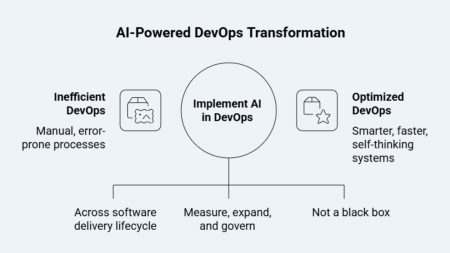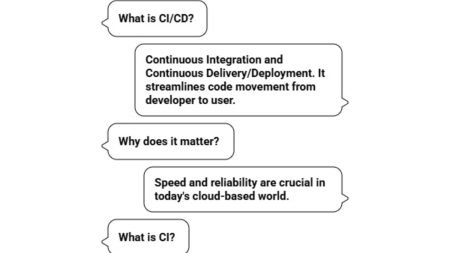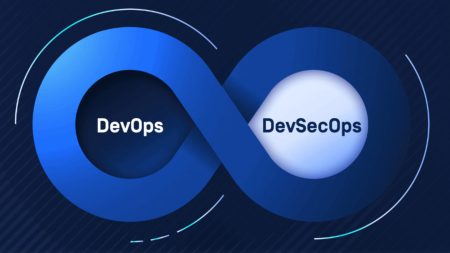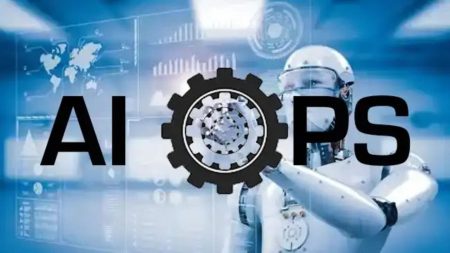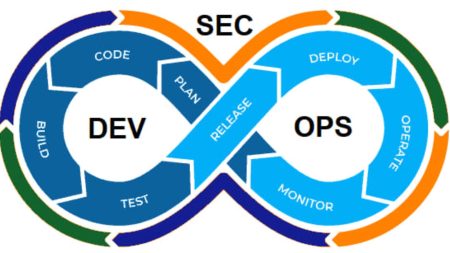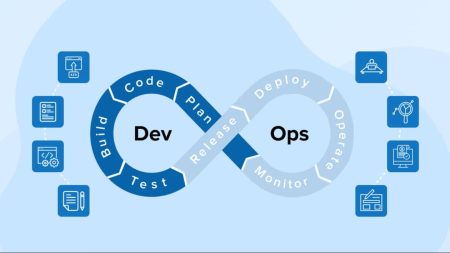The Essential Guide to IT Operations
When we talk about IT operations, it’s easy to imagine a busy control room full of blinking lights and people frantically managing servers, like some kind of high-tech NASA mission. And in some ways, it’s not far from the truth. IT operations (often shortened to “IT ops”) are at the core of keeping businesses running smoothly in today’s digitally-driven world. What exactly are IT operational services and why they so crucial? Let’s pull back the curtain and dive into this world that often works in the shadows, but whose impact is felt every minute of the day.
Stats Recap:
- 93% of businesses rely on cloud services.
- Average IT downtime costs $5,600 per minute.
- A cyberattack happens every 39 seconds.
- 80% of IT leaders see automation as critical for IT operations.
What is IT Operations?
What is technology operations? Think of IT operations as the heartbeat of an organization’s technology. It’s the set of processes, people, and tools responsible for ensuring that the technology infrastructure of a company – whether it’s servers, networks, storage, or software applications – continues to function efficiently and effectively. Without IT ops, the technological foundation of any organization would crumble like a house of cards. There’s no glamour in it, but that’s the beauty. IT operation services are like the unsung heroes behind the scenes, making sure everything works as it should, without a hitch. From network management to security protocols, IT operations span a broad spectrum of responsibilities.
Why are IT Ops Important?
Imagine you’re driving a high-speed sports car. You’re enjoying the ride, but suddenly, the engine sputters. The whole car shudders, and you’re left on the side of the road. In this metaphor, IT operations are the mechanics constantly working to ensure that engine purrs and never stalls. IT operations services form the backbone of organizational functionality. Consider the fact that 93% of businesses now rely on cloud services. Without IT ops managing servers, ensuring system uptime, and troubleshooting technical issues, chaos would ensue. Downtime isn’t just an inconvenience – it’s a major financial risk.
IT Ops vs. DevOps: What’s the Difference?
You’ve likely heard of DevOps, but how does it relate to IT operations? Are they siblings, cousins, or something else entirely? To clarify, IT operations focus on maintaining and supporting the technology already in place. It’s a reactive and proactive practice, ensuring systems run smoothly. DevOps, on the other hand, blends development and operations. It’s more about delivering new services quickly and efficiently, reducing time to market. While both share the common goal of keeping things running smoothly, DevOps leans heavily into innovation and speed, while IT ops emphasizes stability and reliability. Like yin and yang, they’re complementary forces in the IT world.
The Core Components of IT Operations
So, what exactly falls under the umbrella of IT operations? It’s not just one thing but a collection of crucial elements, all working in tandem. Let’s take a look:
- Network Management. The network is the highway for all data traffic in an organization. IT ops teams monitor, manage, and troubleshoot these networks to avoid any disruptions. And when you consider that the average cost of IT downtime is estimated at $5,600 per minute, keeping the network in check becomes mission-critical.
- System Administration. System admins are like the firefighters of the IT world. They ensure servers are working, databases are maintained, and any hardware issues are resolved swiftly. When systems go down, they jump into action faster than you can say “reboot.”
- Security Management. Cybersecurity threats are rising daily, with an attack happening every 39 seconds. IT operation teams are on the front lines, making sure firewalls are in place, patches are updated, and vulnerabilities are patched. Without them, a company’s data is like an unlocked door, waiting for intruders to walk in.
- Helpdesk and Support. No IT operation would be complete without the often thankless job of the helpdesk. When users have issues, IT ops staff are the first responders, offering guidance and solutions – whether that’s fixing a printer issue or resetting a forgotten password.
- Incident Management. For example, ServiceNow incident management. Not every day is smooth sailing. IT operations teams are prepared for the worst – be it a hardware failure, a cyberattack, or a system crash. Their job is to identify the issue quickly, resolve it, and get the system back online with minimal disruption.
Challenges in Information Technology Operations
Let’s face it – information technology operations are no cakewalk. Every organization faces its unique set of challenges. With the rapid growth of digital technologies, keeping everything running like clockwork can feel like juggling chainsaws. Here are some of the biggest challenges that IT ops teams tackle:
Complex Infrastructure
With the rise of hybrid cloud environments, traditional IT infrastructure has grown increasingly complex. IT operation services now need to support both on-premise systems and cloud-based solutions. Managing this sprawling environment can feel like trying to herd cats.
Cybersecurity Threats
As mentioned earlier, the digital world is a playground for cybercriminals. IT ops teams have to constantly adapt to evolving threats, often having to outsmart attackers who seem to have an ever-expanding toolkit.
Budget Constraints
Let’s be honest – IT operations services don’t come cheap. Yet, in many cases, teams are asked to do more with less. Managing tight budgets while maintaining high-performance IT operation systems can be like trying to win a marathon wearing flip-flops.
The Role of Automation in IT Operations
The future of IT operations is as much about technology as it is about automation. As organizations grow and their IT ecosystems become more complex, manual processes just won’t cut it anymore. The world of IT ops is moving toward automation to streamline repetitive tasks, allowing teams to focus on more strategic initiatives. In fact, a recent study found that 80% of IT leaders believe automation is critical for IT operations. Whether it’s automating system monitoring, security protocols, or network management, automation not only saves time but also reduces human error – a win-win scenario. But does that mean IT operations will eventually be fully automated, pushing humans out of the equation? Hardly. IT ops will always need human intelligence and decision-making. The machines might handle routine tasks, but the tough calls still require a seasoned professional.
The Human Side of IT Operations
Let’s not forget – the heart of IT operations is the people who make it happen. Despite all the advancements in automation and artificial intelligence, IT ops is still very much a human-driven field. These professionals work long hours, often behind the scenes, to make sure the company’s technology infrastructure runs like a well-oiled machine.
Empathy and communication are as important as technical skills. IT operations teams are the troubleshooters, problem solvers, and crisis managers that everyone turns to when the chips are down. If you’ve ever been locked out of your email or faced a network outage, you know exactly how much you rely on the expertise of IT ops.
IT Operations Services in a Post-Pandemic World
The COVID-19 pandemic transformed the way businesses operate, and IT operations services were forced to adapt overnight. With a global shift to remote work, IT ops teams had to figure out how to manage an increasingly decentralized workforce. Security protocols had to be rewritten, network capacities expanded, and new collaboration tools deployed. Even as businesses return to some form of normalcy, the lessons learned during this time will shape the future of IT operations. Hybrid work environments are here to stay, and IT ops teams will need to stay agile, supporting both in-office and remote workers without missing a beat.
The Future of IT Ops
Looking ahead, the future of IT operations is likely to be dominated by advancements in artificial intelligence, machine learning, and predictive analytics. These technologies have the potential to revolutionize IT operations, allowing teams to foresee issues before they even occur. AI Ops – when IT operation services can detect hardware failures before they happen or identify security threats in real-time . AI won’t replace IT ops professionals, but it will empower them to make better, faster decisions. In a world where every second of downtime costs money, the ability to prevent issues before they arise is the ultimate goal.
Operations and IT
IT operations may not always get the limelight, but make no mistake – without IT ops, the digital world would come to a grinding halt. From managing networks to preventing cyberattacks, IT ops teams are the unsung heroes of the business world. And as technology continues to evolve, IT operations services will only grow in importance, helping companies stay competitive, secure, and agile in an increasingly digital age.
At the end of the day, IT operations are about one thing – keeping the engine running smoothly. And whether that’s through human ingenuity or advanced automation, the future of IT ops is bright, bold, and absolutely essential. So, the next time you fire up your computer or connect to a network, remember that there’s a dedicated IT operations team working tirelessly to keep everything humming along, just the way it should be. In the end, IT operations aren’t just the wheels of the digital world – they’re the engine, the driver, and the pit crew, all in one.


